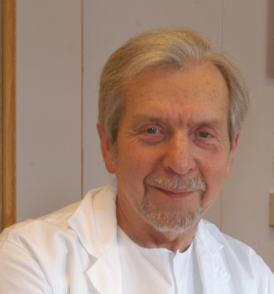Daily supplementation with 200 mcg of selenium and 200 mg of Coenzyme Q10 for four years has resulted in significant increases in serum SIRT1 concentrations. In the parallel placebo group, the serum SIRT1 concentrations decreased significantly [Opstad, Alehagen 2023].

This is the latest evidence from the KiSel-10 Study in which researchers randomly assigned elderly community-living Swedish men and women, average age: 76 years, 49% female, to a combined selenium and Coenzyme Q10 treatment group or to a placebo group [Alehagen 2013].
In earlier papers, the KiSel-10 Study researchers have reported beneficial effects of the combined supplementation of the elderly Swedish citizens with low baseline selenium levels [Alehagen 2022; Opstad 2022]:
- improved cardiac function
- reduced inflammation
- reduced oxidative stress
- improved endothelial function
- decreased telomere attrition
A 12-year follow-up study of the KiSel-10 study participants has shown that the significantly reduced risk of cardiovascular disease mortality in the active treatment group persisted for another eight years after the cessation of the four-year intervention period. This significant reduction in risk held when the researchers investigated the outcomes in subgroups of patients with diabetes, hypertension, ischemic heart disease, or impaired functional capacity [Alehagen 2018].
Relationship of Selenium and Sirtuins in Health and Disease
This KiSel-10 follow-up study seems to be the first report of the effect of selenium and CoQ10 supplementation on sirtuin concentrations. Sirtuins are a family of seven enzymes: SIRT 1 through SIRT7. They are nicotinamide adenine dinucleotide-dependent deacylases that seem to be largely responsible for the cardiometabolic benefits of lean diets and exercise [Kane, Sinclair 2018].
When the sirtuins increase in concentration and activity, they seem to delay key aspects of aging. SIRT1 is the most studied of the sirtuins. It protects against a decline in vascular endothelial function, metabolic syndrome, ischemia-reperfusion injury, obesity, and cardiomyopathy [Kane, Sinclair 2018]
Increasing age, sedentary lifestyle, and obesity are associated with steady declines in sirtuin activity. There has been very little research done on the effect of agents such as selenium and Coenzyme Q10 on the concentration and activity of SIRT1. However, it seems likely that agents that activate SIRT1 will improve the health of cardiovascular and metabolic disease patients [Kane, Sinclair 2018].
Summary: Selenium Increases Serum SIRT1 Concentrations
There was no significant difference in SIRT1 levels between the two test groups at the start of the KiSel-10 Study.
After four years of intervention, the SIRT1 concentrations increased significantly in the active treatment group and decreased significantly in the placebo group.
KiSel-10 study participants who suffered a cardiovascular disease death during a 10-year follow-up had significantly lower baseline SIRT1 concentrations compared to the survivors.
When the KiSel-10 researchers evaluated the active treatment group and placebo group separately, they found significantly lower concentrations of SIRT1 in the placebo group in those individuals who suffered a cardiovascular disease death than in the survivors.
In the active treatment group, they found that the SIRT1 concentrations in the survivor group were higher than in the cardiovascular disease mortality group. However, the differences were not statistically significant. The lack of statistically significant difference may be due to the highly restricted sample size in this sub-analysis.
The increased SIRT1 concentration after the Selenium and CoQ10 intervention associated with reduced CV mortality suggests that SIRT1 reduces the risk of death from cardiovascular disease and prevents vascular ageing.
Sources
Alehagen U, Johansson P, Björnstedt M, Rosén A, Dahlström U. Cardiovascular mortality and N-terminal-proBNP reduced after combined selenium and coenzyme Q10 supplementation: a 5-year prospective randomized double-blind placebo-controlled trial among elderly Swedish citizens. Int J Cardiol. 2013 Sep 1;167(5):1860-6.
Alehagen U, Aaseth J, Alexander J, Johansson P. Still reduced cardiovascular mortality 12 years after supplementation with selenium and coenzyme Q10 for four years: A validation of previous 10-year follow-up results of a prospective randomized double-blind placebo-controlled trial in elderly. PLoS One. 2018 Apr 11;13(4):e0193120.
Alehagen U, Johansson P, Svensson E, Aaseth J, Alexander J. Improved cardiovascular health by supplementation with selenium and coenzyme Q10: applying structural equation modelling (SEM) to clinical outcomes and biomarkers to explore underlying mechanisms in a prospective randomized double-blind placebo-controlled intervention project in Sweden. Eur J Nutr. 2022 Sep;61(6):3135-3148.
Kane AE, Sinclair DA. Sirtuins and NAD+ in the development and treatment of metabolic and cardiovascular diseases. Circ Res. 2018 Sep 14;123(7):868-885.
Opstad TB, Alexander J, Aaseth JO, Larsson A, Seljeflot I, Alehagen U. Selenium and Coenzyme Q10 Intervention Prevents Telomere Attrition, with Association to Reduced Cardiovascular Mortality-Sub-Study of a Randomized Clinical Trial. Nutrients. 2022 Aug 15;14(16):3346.
Opstad TB, Alexander J, Aaseth J, Larsson A, Seljeflot I, Alehagen U. Increased SIRT1 concentration following four years of selenium and q10 intervention associated with reduced cardiovascular mortality at 10-year follow-up—sub-study of a previous prospective double-blind placebo-controlled randomized clinical trial. Antioxidants 2023, 12, 759.
The information presented in this review article is not intended as medical advice and should not be used as such.
31 March 2023
